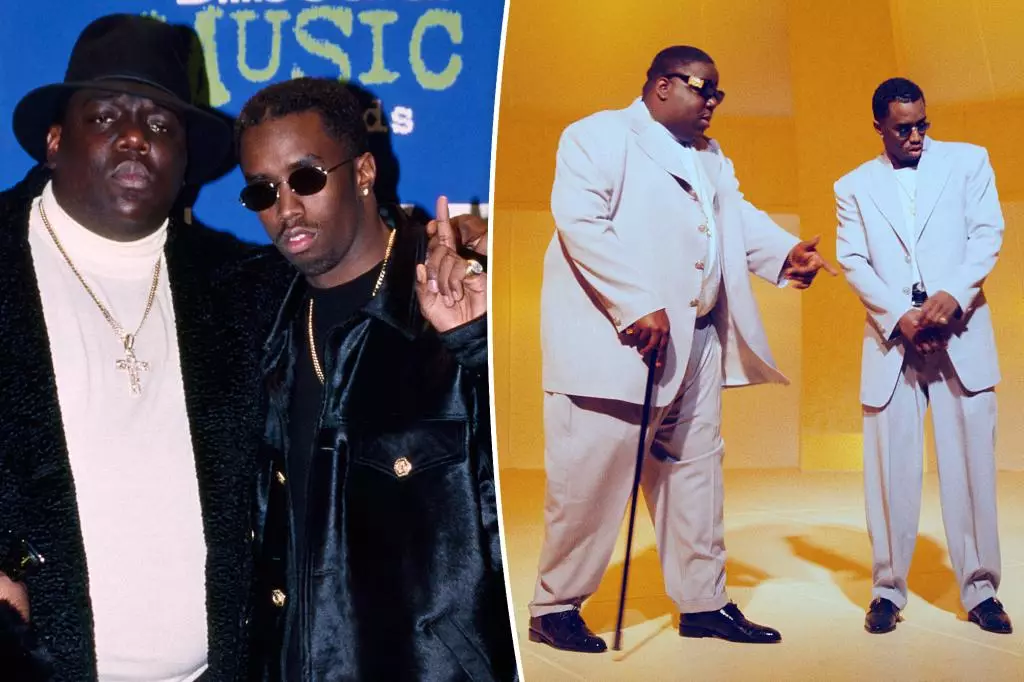In examining the recent surge of allegations against Sean “Diddy” Combs, one cannot ignore the complex interplay between celebrity influence and the justice system. As a figure who has long epitomized success in music, fashion, and entrepreneurship, Diddy’s reputation now hangs in a delicate balance. The recent lawsuits, which include shocking accusations spanning from sexual misconduct to bizarre claims involving alleged acts of disrespect towards the late Notorious B.I.G., serve as a stark reminder of how abuse of power can percolate within hierarchies of influence.
The gravity of these allegations is not merely a matter of individual misconduct but questions the culture of accountability within celebrity circles. When figures like Combs are scrutinized under the lens of legal investigations and public opinion, it exposes the often murky boundaries between personal misconduct and the mechanisms of protecting a brand. The claims, whether politically or morally persuasive, remind us that power often breeds insulation, enabling misconduct to flourish unchecked. The core issue is not only the allegations themselves, but how society processes and responds to accusations against those wielding vast influence.
Legal Battles and Public Perception: Navigating the Paradox
Despite the serious nature of the accusations, defending legal victories like Combs’ recent acquittal on trafficking charges complicates the narrative. The juxtaposition of his legal triumphs and ongoing lawsuits reveals a paradox: the law can exonerate, yet damage and public suspicion linger. Combs’ lawyers highlight his acquittal as evidence of innocence, but the ongoing civil suits and disturbing allegations challenge the clarity of that triumph.
Public perception remains fragile in these situations. When a figure with a track record of success faces seemingly sensational allegations, society tends to oscillate between skepticism and condemnation. It raises important questions about the role of the media in shaping narratives, especially when stories involve sensational claims that are often difficult to verify. In this case, the alleged acts extend beyond mere misconduct—venturing into the realm of moral outrage. Still, it is essential to recognize that the court of public opinion is inherently imperfect, susceptible to impulse and superficial judgments.
The Cultural Implications and the Fight for Justice
What makes this saga particularly compelling—yet troubling—is the broader cultural context. Allegations against a Black music mogul like Combs evoke complex reactions rooted in race, power, and societal expectations. The accusations, especially of sexual misconduct, ignite debates about the prevalence of such abuse in entertainment industries saturated with hyper-masculinity and unchecked privilege. They also serve as a stark reminder that no one, regardless of fame, is immune from scrutiny.
The fight for justice is multifaceted. It involves respecting due process, affirming victims’ rights, and recognizing the importance of accountability. Yet, it also demands that society question the systemic protections that enable such figures to evade consequences or dismiss accusations as false. The ongoing lawsuits signify a pivotal moment—a societal reckoning that challenges the myth that fame equates to immunity from justice. This crucial shift pushes Hollywood, the music industry, and related institutions to confront uncomfortable truths about their complicity in shielding powerful individuals.
Powerful Disruption or Powerless Victim? An Ethical Reflection
At its core, the controversy surrounding Diddy prompts an urgent ethical discussion: how should society respond when allegations surface against those who have cultivated images of success and influence? The temptation to dismiss accusations as fabrications or to prioritize a celebrity’s reputation over truth is a common pitfall. However, the presence of serious lawsuits indicates that there are victims seeking justice and acknowledgment—an imperative that cannot be ignored.
Importantly, real change depends on how institutions handle such claims. Are they mere political tools, or are they genuine attempts to hold the powerful accountable? Society must critically examine the underlying power structures that enable abuse and foster environments where victims feel safe to come forward. The ongoing legal proceedings serve as a litmus test—will they result in meaningful consequences, or will they fade into the background like many before?
Ultimately, the situation with Diddy is not just about one man’s alleged misconduct but reflects broader societal challenges. It’s a call to remain vigilant, question power dynamics critically, and prioritize justice over reputation. How we navigate this turbulent moment will shape the future of accountability within the entertainment industry and, perhaps, in wider society.
